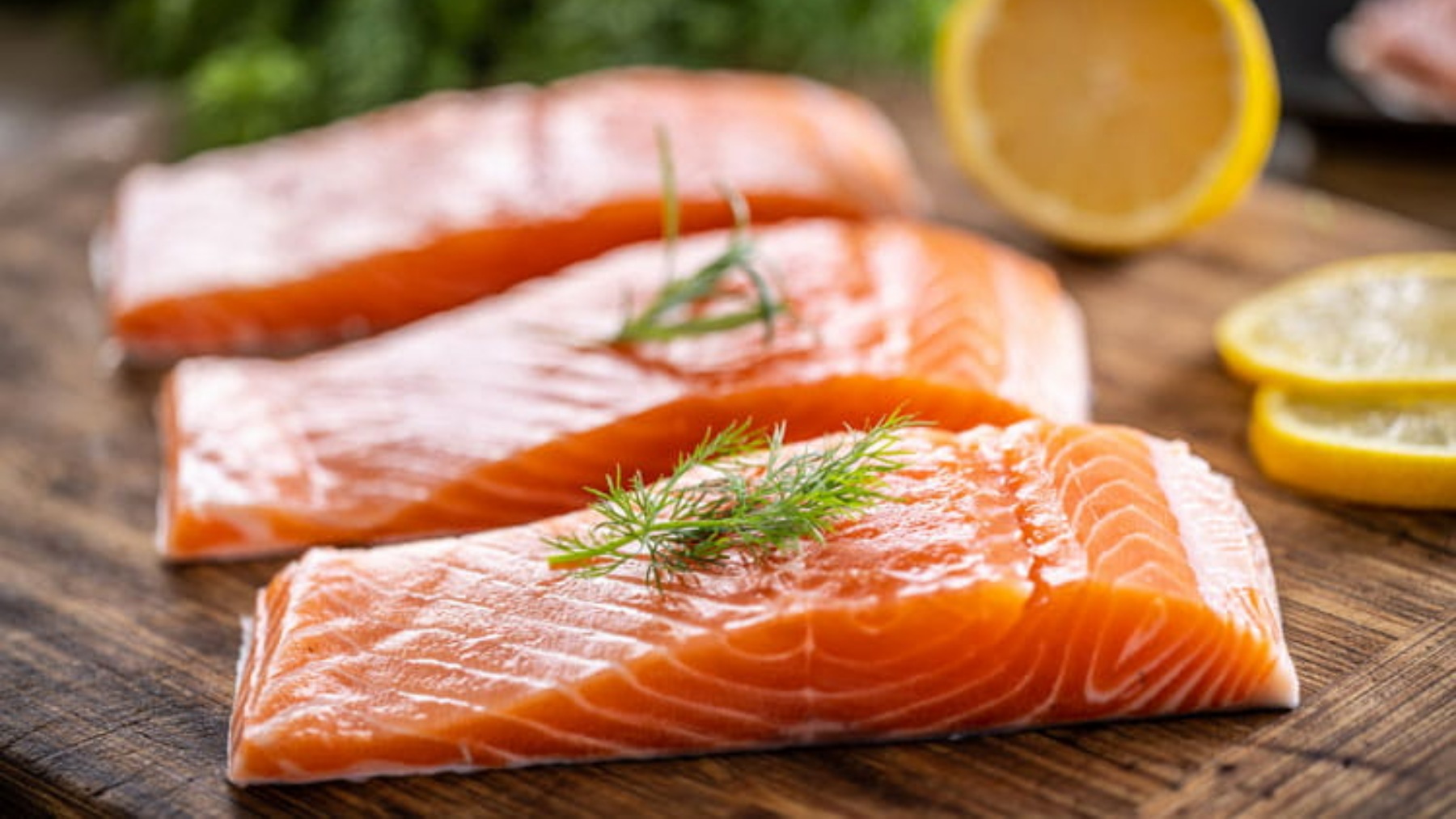There is something your body needs to keep your organs in shape: the omega-3 fatty acid. It is essential for the heart, for keeping the brain alert, and even for feeling more emotionally balanced! But the human body doesn’t produce it, so it must be obtained from food. What foods are sources of omega-3? According to the American Heart Association, oily fish! And apparently, eating this type of fish a couple of times a week can reduce heart disease, improve memory and concentration… almost like being born again!
Here are the 7 omega-3 champions of the sea, your heart will thank you later!
Omega-3
You are probably wondering what omega-3 means. It is a type of protein mainly found in fish, especially the proteins EPA and DHA.
These acids help lower triglycerides, reduce inflammation, and protect the nervous system. In addition, several recent studies show that they can also improve memory and reduce the risk of Alzheimer’s.
Salmon, the undisputed king
When it comes to omega-3, salmon is number one. In all its forms, it provides between 1 and 3 grams of EPA and DHA per 100 grams, along with vitamin D and many other high-quality proteins.
Note: it has to be wild salmon, because farmed salmon has more fat and more omega-6. So if you have the chance to buy wild salmon, go for it. And if you’re feeling adventurous, salmon roe contains 3 grams of omega-3 per 100 grams, an authentic protein bomb!
Halibut
Halibut, also known as Atlantic or Pacific halibut, has about 2.2 grams of omega-3 per serving, plus potassium, selenium, and lean proteins. It helps control blood pressure and improves good cholesterol (HDL). It also contains vitamin B12 and natural antioxidants to keep your brain in shape.
And if that wasn’t enough, its vitamin B12 and antioxidants keep your brain sharp. Experts even say halibut can reduce the risk of neurodegenerative diseases like Alzheimer’s. Time to eat more halibut!
Herring, small but mighty
With 1.8 grams of omega-3 per serving and plenty of vitamin E, potassium, and selenium, herring earns its place on this list. It helps regulate blood pressure, strengthens the immune system, and reduces the risk of neurological conditions.
And if you eat it in winter, its high vitamin D content will help you maintain your energy and mood during the darker days.
Sardines
Small, tasty, and very affordable, no excuses. Sardines are a true gift from the sea, with 1.7 grams of omega-3 per 100 grams, plus calcium, magnesium, and iron. They’re much better than fish oil supplements!
Trout!
Delicious! Both rainbow and brown trout have low mercury levels and contain about 1 gram of omega-3 per serving.
They help improve brain circulation and regulate blood pressure. Baked or grilled with a few slices of lemon, they’re simply spectacular.
Mackerel
Mackerel, from tropical seas, contains between 0.8 and 1.8 grams of omega-3 per 100 grams, and also provides vitamin D, B12, and minerals like copper and selenium.
It helps lower bad cholesterol (LDL) and strengthens bones. And if you’re worried about mercury, avoid king mackerel, which has the highest levels. Otherwise, bread, tomato, mackerel, and mayonnaise, then tell us how it goes!
Fresh tuna
Fresh tuna is another classic and honestly, one of our favorites. Rich in lean protein, it provides between 0.25 and 1.3 grams of omega-3 per serving.
It supports cardiovascular and brain health thanks to its DHA and B vitamins, but it’s essential to eat it in moderation (because it accumulates a lot of mercury!).
How to include more omega-3 in your diet
Ideally, eat oily fish twice a week. You have thousands of options, grilled, baked, steamed, in poke, in sushi, canned… And the best part, of course, is choosing small, seasonal fish!
Stress and ultra-processed foods dominate our diets, which is why we need to go back to eating from the sea. Besides, who doesn’t love one of these fish?!

